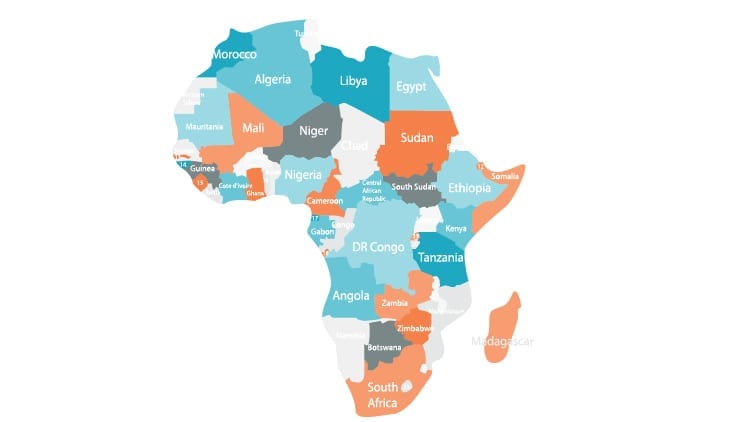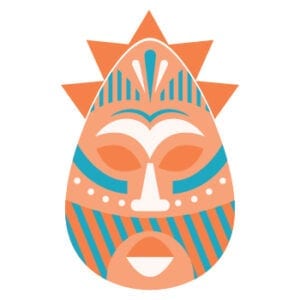Spanish Speaking Countries In Africa

The Spanish Language:
When the Romans came to the Iberian Peninsula, they introduced the natives to their language, Latin. But after the fall of the Roman Empire, Latin slowly began to fade. However, it did not go out of use completely. The most popular European vernaculars of today are the daughter languages of Latin. They are known as Romance languages and are primarily spoken in South America, Central Africa, and Europe. Out of all of these languages, Spanish is the most spoken tongue. It has nearly 600 million speakers in the world. It spread to different parts of the world because of colonization. Today, the Spanish and Portuguese-speaking countries in the Americas form the region known as Latin America. Spanish is also one of the most spoken languages in the United States. It is the official language of more than twenty countries.
The majority of native speakers of Spanish live in Latin America. The second-highest number of Spanish native speakers can be found in the European Union. This makes people wonder if the language is spoken on other continents, too. Indo-European languages are indeed talked all over the world. But not all of the family members can be found on every continent. However, a few languages are spoken on every continent of the world.
Romance languages are spoken in multiple countries in Europe. In total, they have nearly a billion native speakers. Some of them are also said in a few countries in Asia. But most of their speakers cannot be found in Asia or Africa.
What are the Spanish Speaking Countries in Africa?
Africa is the second-largest continent. It is home to 1.2 billion people who speak different languages and practice various cultures. Africa is also the place where the earliest humans lived. Some of the world’s oldest languages originated in Africa. Various indigenous languages are spoken on this continent. However, some African languages have gone extinct due to the popularity of foreign languages like English and French. So, are there any Spanish-speaking countries in Africa? The answer is yes, there are. Spanish is spoken in parts of Western Sahara. There are also small Spanish-speaking communities in the northern parts of Morocco. However, there is only one African country where Spanish is recognized as an official language.

Equatorial Guinea:
Equatorial Guinea is the only sovereign state in the African continent where Spanish is recognized as an official language. This variety of Spanish is known as Equatoguinean Spanish. It also appears on the list of French-speaking countries because French is also one of the official languages in Equatorial Guinea. But it is only a minority language in the country. In Malabo, the capital of Equatorial Guinea, everyone speaks Spanish as their native language. Overall, 67% of the country’s population can speak the language. The land was ruled by European powers in the past, including the Portuguese and the Spaniards.
In 2010, Portuguese was also added to the constitution as one of the official languages of Equatorial Guinea. The country has had close historical ties with Portugal. The promotion of Portuguese was made to establish strong relationships with other Portuguese-speaking countries of the continent. Despite recognizing other languages in the constitution, Spanish continues to be the language of education.

Equatorial Guinea’s primary language is Spanish, but various aboriginal and indigenous languages are also spoken in the country. Fang in Equatorial Guinea is the most popular ethnic group. Bobi, Igbo, and Ndowe are other popular ethnic groups.
Río Muni is the mainland region in the Equatorial Region—Cameroon and Gabon border Río Muni. Malabo, the capital city, is located on Bioko Island. Bioko Island is home to a few indigenous communities. The biggest problems that this African country faces today are human trafficking and forced child labor. Although the Gross Domestic Product shows that Equatorial Guinea is a rich country, wealth is unevenly divided between its population. The country’s authoritarian government does not try to protect its citizens’ rights. Human development has been on the decline for decades. Things improved under the rule of President Obiang when the illiteracy rate dropped in Equatorial Guinea. But the country continues to have the worst human rights records in the world.
The Languages of Africa:
Africa is known worldwide as home to some of the world’s ancient civilizations and languages. It is the place where various indigenous languages are still thriving. In some countries of the continent, only native tongues are recognized as national languages, as compared to Latin American and English-speaking countries, where the primary languages of natives went extinct.
Modern Standard Arabic is spoken in 13 Central and Sub-Saharan African countries. Moroccan Arabic is the most popular variety of Arabic spoken in Africa. In Western Sahara, Hassaniya Arabic is spoken by a significant percentage of the population. The Modern Standard Arabic of the Middle East differs slightly from the Hassaniya Arabic and Moroccan Arabic. Modern Standard Arabic is the mother tongue of all the Arab population, including the people of Saudi Arabia and the Middle East. It is also the language of government all over the Arab world.
Numerous Bantu languages are spoken in 27 African countries, including Nigeria, Somalia, Equatorial Guinea, South Africa, Namibia, and Zimbabwe. They are the national languages of all the countries where Bantu people make up the majority. Various Creole languages are also spoken in West Africa. The national culture of every country, as well as their national languages, are all influenced by multiple factors. No terminology in Africa has been affected by aboriginal vernaculars of the region.
Equatorial Guinea:
Equatorial Guinea is a country in Central Africa comprising five offshore volcanic islands and the Rio Muni Mainland. It has a culturally rich and diverse history owing to the various ethnic rules that persisted for centuries. The Spanish government was the longest in the country. Equatorial Guinea came out of Spanish law and colonial authorities and gained independence under Francisco Macias Nguema only in the late 20th century. The country’s current president is the nephew of Macias Nguema, Teodoro Obiang Nguema.
Spanish is the national language of the country. Portuguese and French are also the official languages here. Sadly, the country’s economic development was permanently restricted one way or the other. Even though Equatorial Guinea has become the third-largest oil producer in Sub-Saharan Africa, it hasn’t gotten the place in the world that it deserved. This is why most people have heard the names like Cape Town and Johannesburg but not Malabo and Bata.
What’s even worse is the fact that human rights abuses are common. And nothing has changed despite Human Rights Watch’s indications of false play and dictatorship in the country. Progress and economic development still seem like a dream to the natives.
Frequently Asked Questions
Equatorial Guinea. Yes, Equatorial Guinea is the only Spanish-speaking country in Africa. Equatorial Guinea’s capital city is Malabo.
It may come as a surprise to you but there is only one Spanish-speaking country in Africa, and that is Equatorial Guinea.
Colonial Spanish Africa comprises North Morocco, Ifni, the Tarfaya region, Western Sahara, and the territories of early-21st-century Equatorial Guinea.




